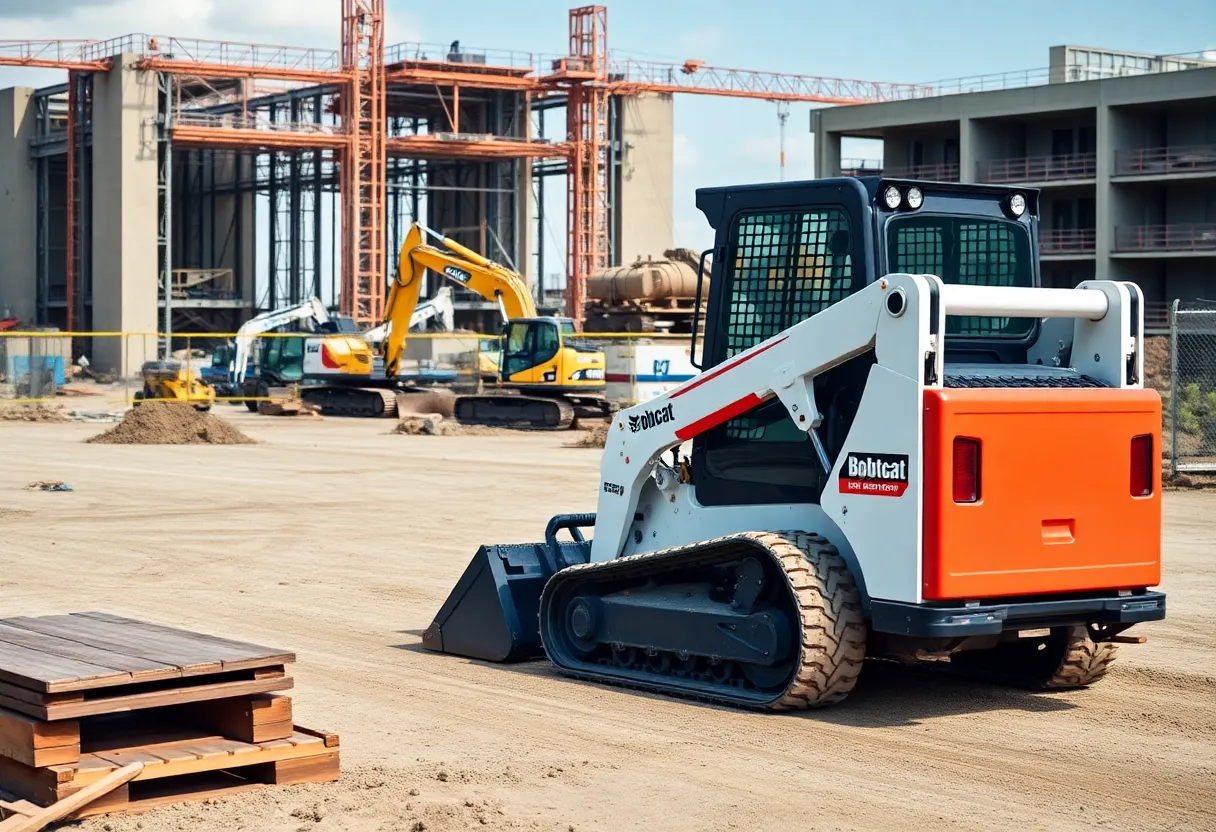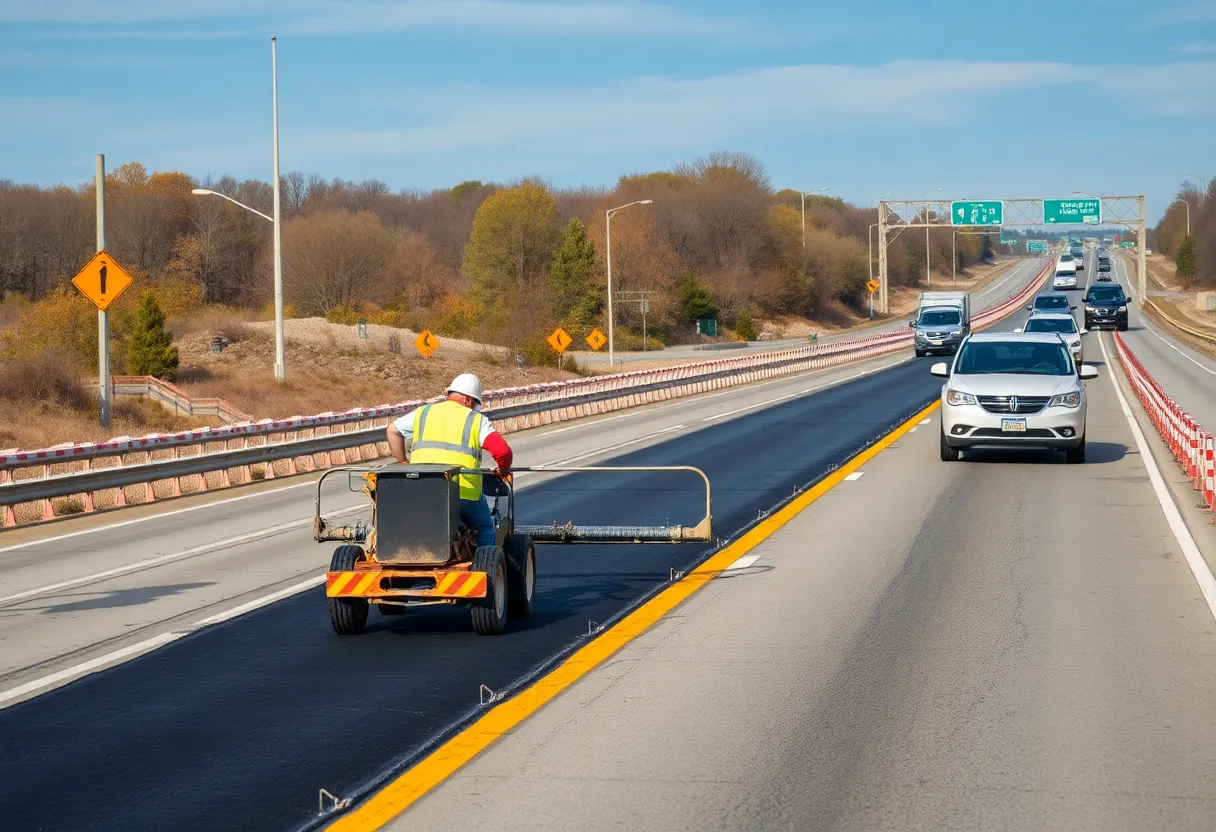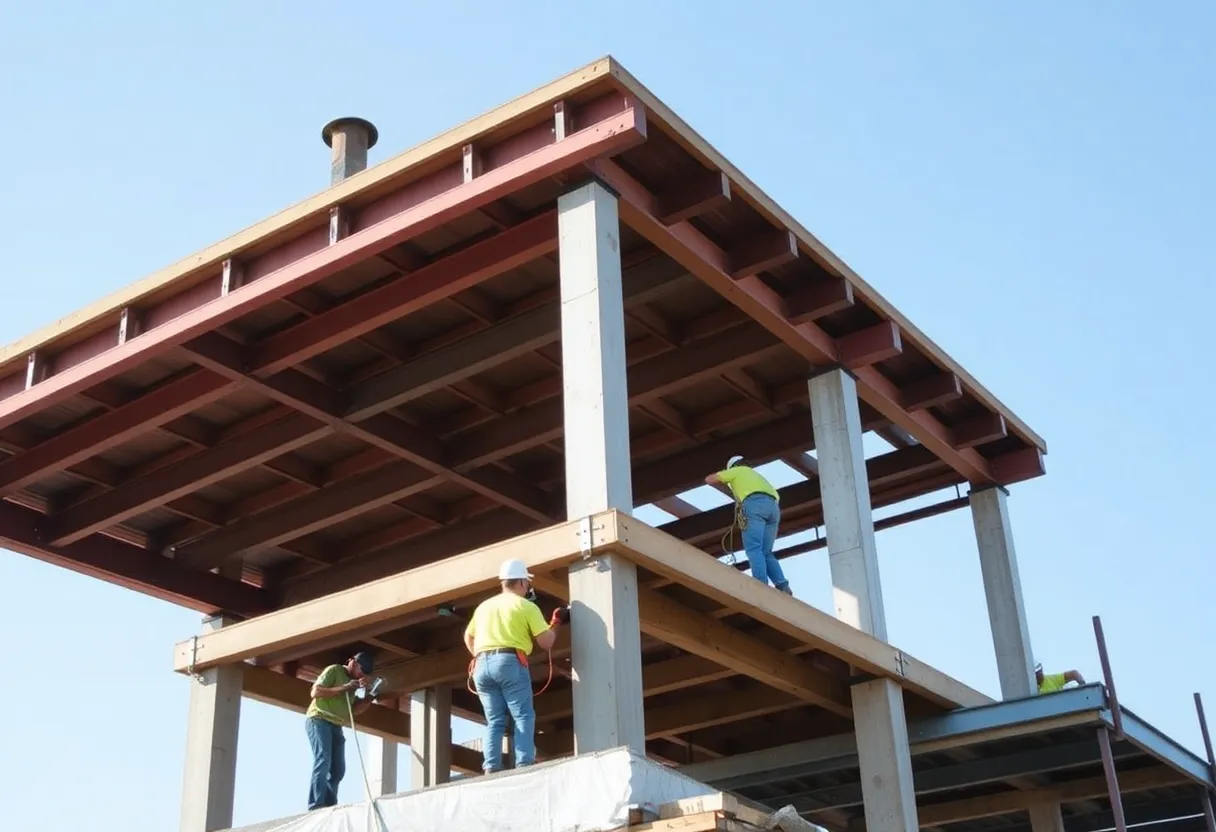News Summary
Bobcat Company highlights the critical issue of equipment theft during National Vehicle Theft Prevention Month, revealing that the construction industry faces losses between $300 million and $1 billion annually. With job sites often vulnerable, Bobcat offers advanced security features in its telematics software to help safeguard machinery. The company also showcased innovative technologies at bauma 2025, emphasizing the shift toward electrification and automation in construction equipment, as well as the growing market for autonomous machinery.
Bobcat Company Addresses Equipment Theft During National Vehicle Theft Prevention Month
In July, which marks National Vehicle Theft Prevention Month, Bobcat Company is bringing attention to a pressing issue within the construction industry: the escalating problem of equipment theft. This crime not only affects business operations but also results in substantial financial losses.
On average, the equipment rental industry suffers losses of around $100 million annually, primarily due to theft. However, the broader North American construction industry faces a staggering annual loss ranging from $300 million to $1 billion. These figures underline the urgent need for effective security solutions in construction.
The Challenges of Equipment Theft
With job sites often sprawling and equipment left unattended at times, the construction industry is particularly vulnerable. Garrett Maurer, who oversees digital product management at Bobcat, notes that the industry is encountering increasing theft challenges. As companies strive to optimize productivity, the loss of heavy machinery can impede project timelines and inflate operational costs.
Bobcat’s Smart Security Solutions
To address the prevalent issue of theft, Bobcat Company offers a suite of advanced security features embedded in its telematics software. These features aim to assist construction businesses in safeguarding their valuable equipment. Users can track the locations of machines, set operational curfews, and implement geofencing to create virtual boundaries around job sites.
Additionally, the Machine IQ platform developed by Bobcat includes a remote engine disable/enable functionality. This system empowers operators to respond swiftly to unauthorized usage by allowing them to control their machines via a mobile app or online portal.
Technological Innovations in Construction Machinery
The landscape of construction technology is rapidly evolving, demonstrated significantly at the recent bauma 2025 exhibition. This event highlighted advancements in equipment focusing on electrification, automation, and digital transformation. Major manufacturers showcased their latest innovations aimed at improving efficiency and sustainability.
Caterpillar Inc. celebrated its 100th anniversary by unveiling 48 machines, including 17 new innovations. Among the notable launches was the 330 UHD Ultra High Demolition Hydraulic Excavator, equipped with a Stability Monitoring System. Another key introduction was the Cat 775 off-highway truck, which has been designed with future autonomous capabilities in mind, leveraging existing automated mining technologies.
Bobcat also made significant strides at the exhibition, presenting the new R2 Series mini excavators that feature a SmartFlow hydraulic system, enhancing operational efficiency. Concept machines were also on display, including the TL25.60e electric telehandler and the RogueX all-electric autonomous compact loader, showcasing the shift towards electrification and automation in construction.
The Growing Market for Autonomous Equipment
Market projections indicate a promising growth trajectory for the autonomous construction equipment sector, which is expected to increase from $4.43 billion in 2024 to approximately $9.86 billion by 2030. This growth is driven by factors such as a shortage of skilled labor, improvements in operational safety, enhanced cost efficiencies, and a broader inclination toward environmentally sustainable practices.
Regions in the Americas are witnessing a robust demand for autonomous equipment, primarily due to strong infrastructure growth and substantial needs for mined materials. Leading equipment manufacturers, including Caterpillar and John Deere, are integrating artificial intelligence and machine learning technologies into their offerings, although the construction sector overall remains behind other industries in AI readiness.
Innovations in Electrification
At bauma, the focus on electrification continued with CASE Construction Equipment showcasing a variety of engine and battery-powered machines. Similarly, Volvo Construction Equipment announced the upcoming release of their first battery-electric articulated hauler, expected to be available for rental in European markets starting in 2026.
The advancements in electric machines were not confined to Western companies. Chinese OEMs such as XCMG, SANY, and LiuGong also unveiled numerous electric and hybrid models designed to meet European standards. Overall, innovations in battery technology and a commitment to sustainability are paving the way for the future of autonomous construction equipment.
Deeper Dive: News & Info About This Topic
Additional Resources
- Construction Equipment: The Weekly Iron – July 8, 2025
- Wikipedia: Construction Industry
- On-Site Magazine: Bobcat Addresses Machine Security
- Google Search: Bobcat machine security
- Power Motion Tech: Bauma 2025 Advances
- Google Scholar: Construction Technology Advancements
- MinuteHack: Digital Transformation in Heavy Equipment
- Encyclopedia Britannica: Digital Transformation
- Construction Equipment: JLG Industries Enhancements
- Google News: JLG Industries
- Construction Equipment Guide: AED Goals for Tech Careers
- Google Search: Equipment Technology Careers
Author: Construction FL News
The FLORIDA STAFF WRITER represents the experienced team at constructionflnews.com, your go-to source for actionable local news and information in Florida and beyond. Specializing in "news you can use," we cover essential topics like product reviews for personal and business needs, local business directories, politics, real estate trends, neighborhood insights, and state news affecting the area—with deep expertise drawn from years of dedicated reporting and strong community input, including local press releases and business updates. We deliver top reporting on high-value events such as the Florida Build Expo, major infrastructure projects, and advancements in construction technology showcases. Our coverage extends to key organizations like the Associated Builders and Contractors of Florida and the Florida Home Builders Association, plus leading businesses in construction and legal services that power the local economy such as CMiC Global and Shutts & Bowen LLP. As part of the broader network, including constructioncanews.com, constructionnynews.com, and constructiontxnews.com, we provide comprehensive, credible insights into the dynamic construction landscape across multiple states.





